Welcome to Gallery VIII
Links to the other pages:
Gallery I Gallery II. Gallery III. Gallery IV. Gallery V. Gallery VI. Gallery VII.
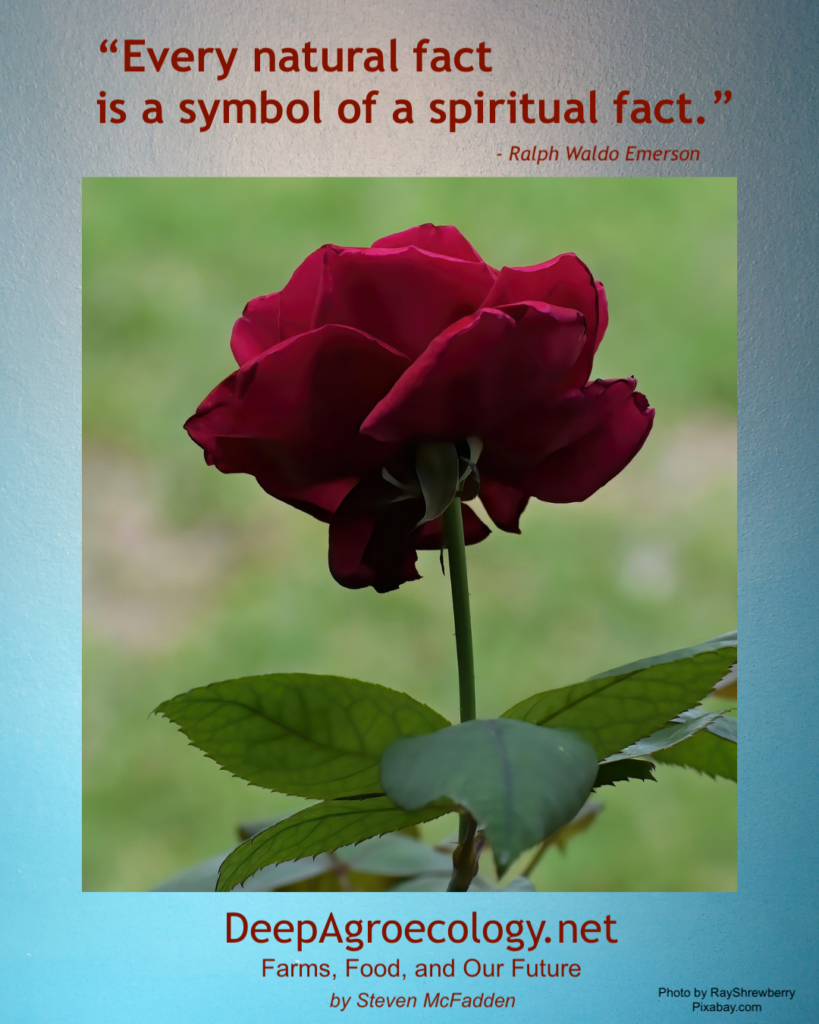
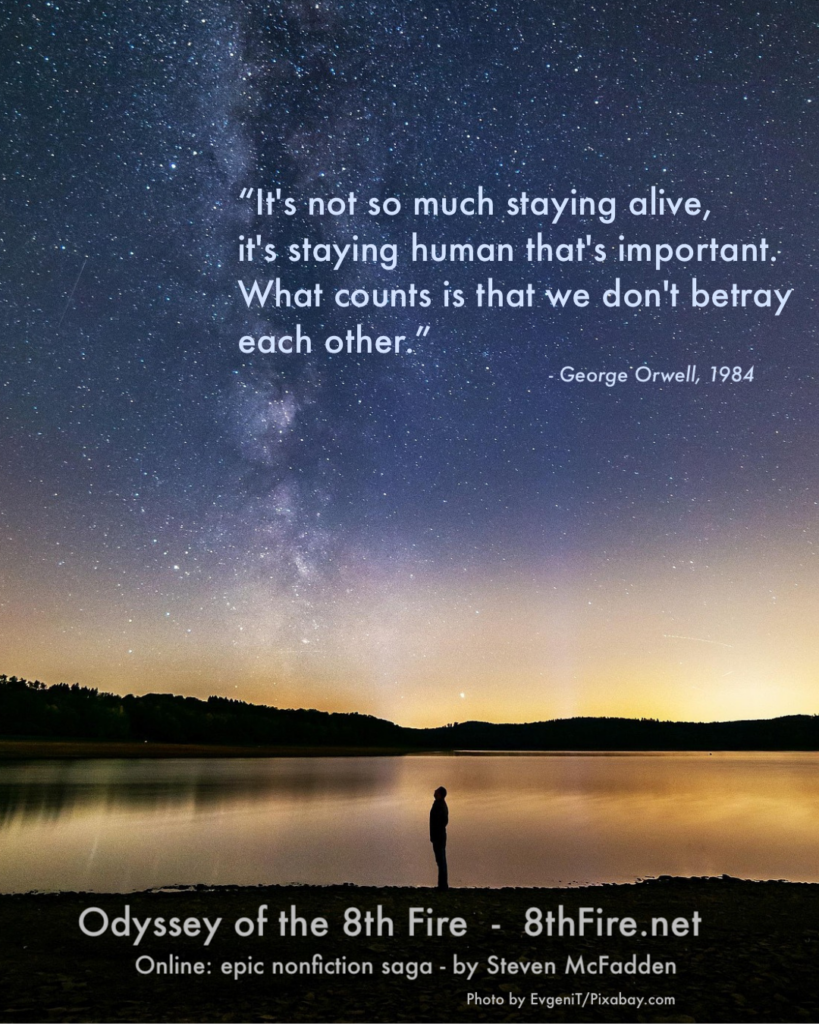
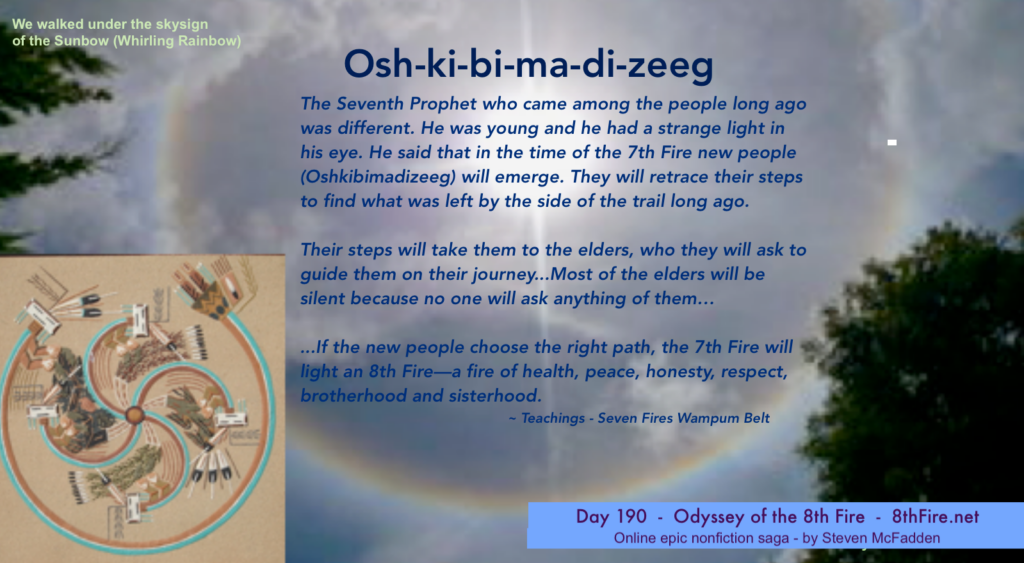
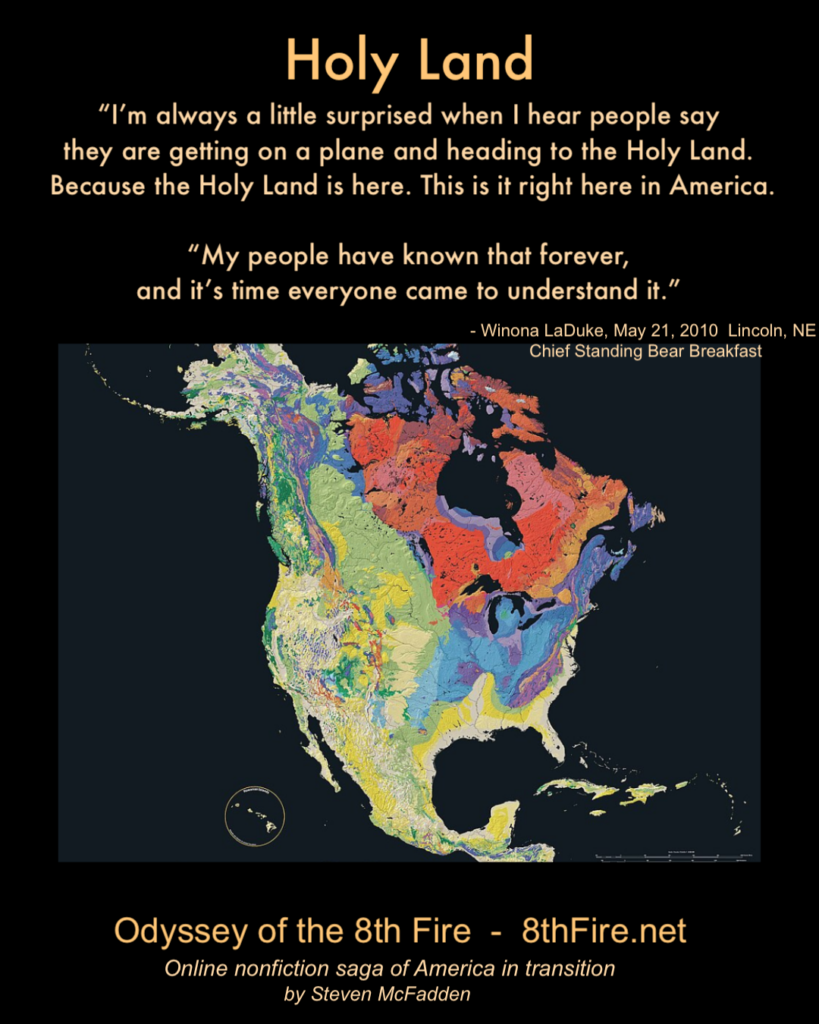
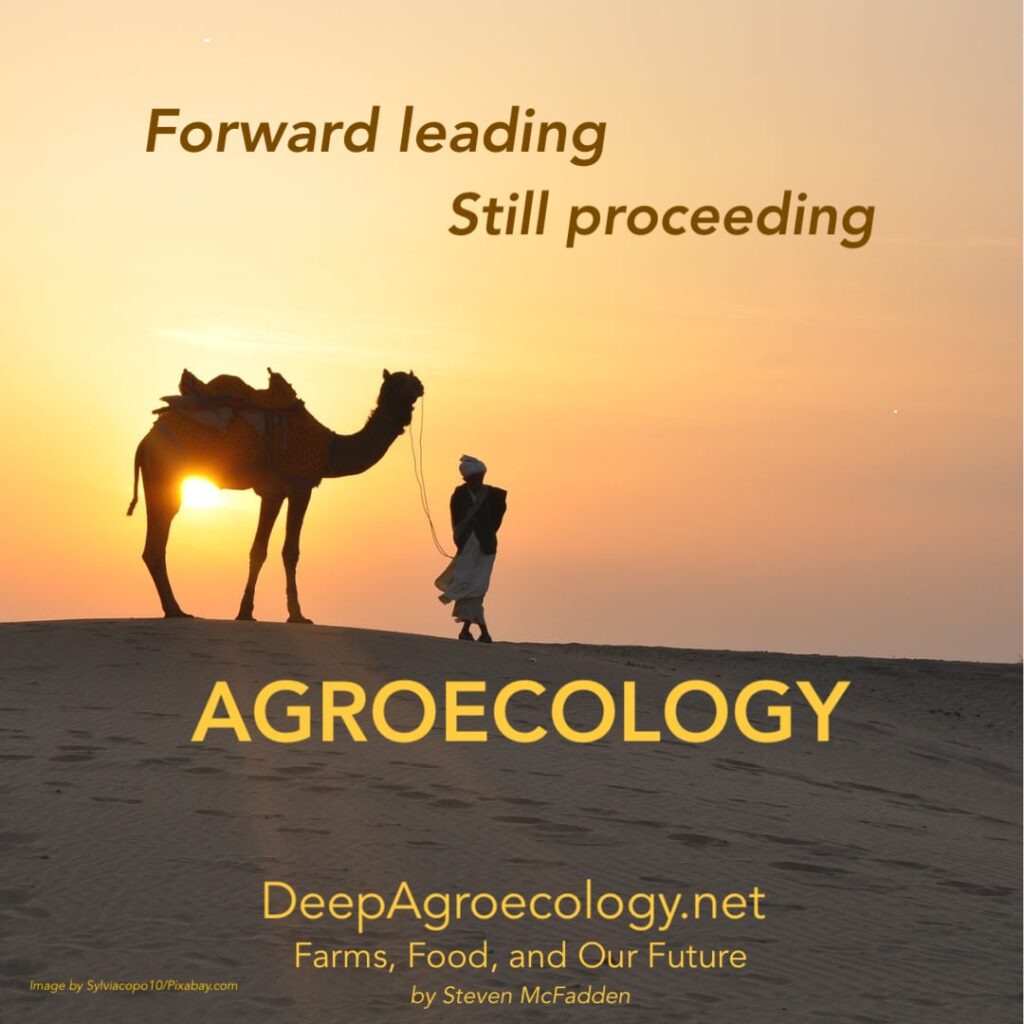
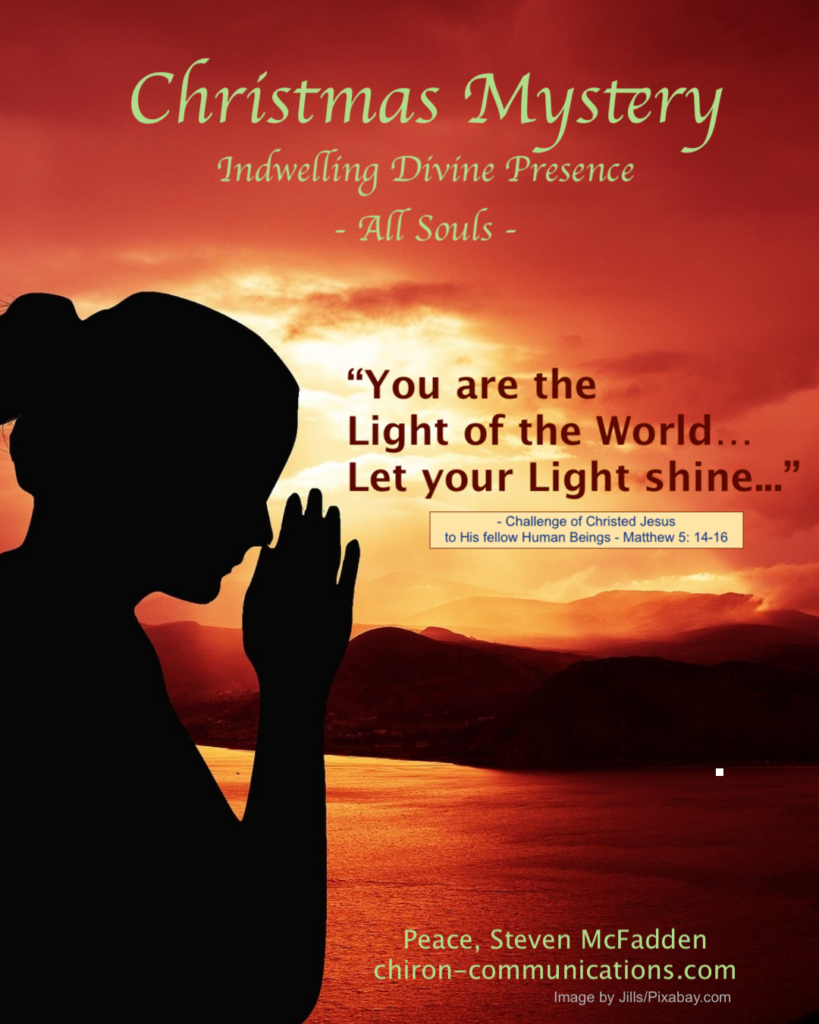


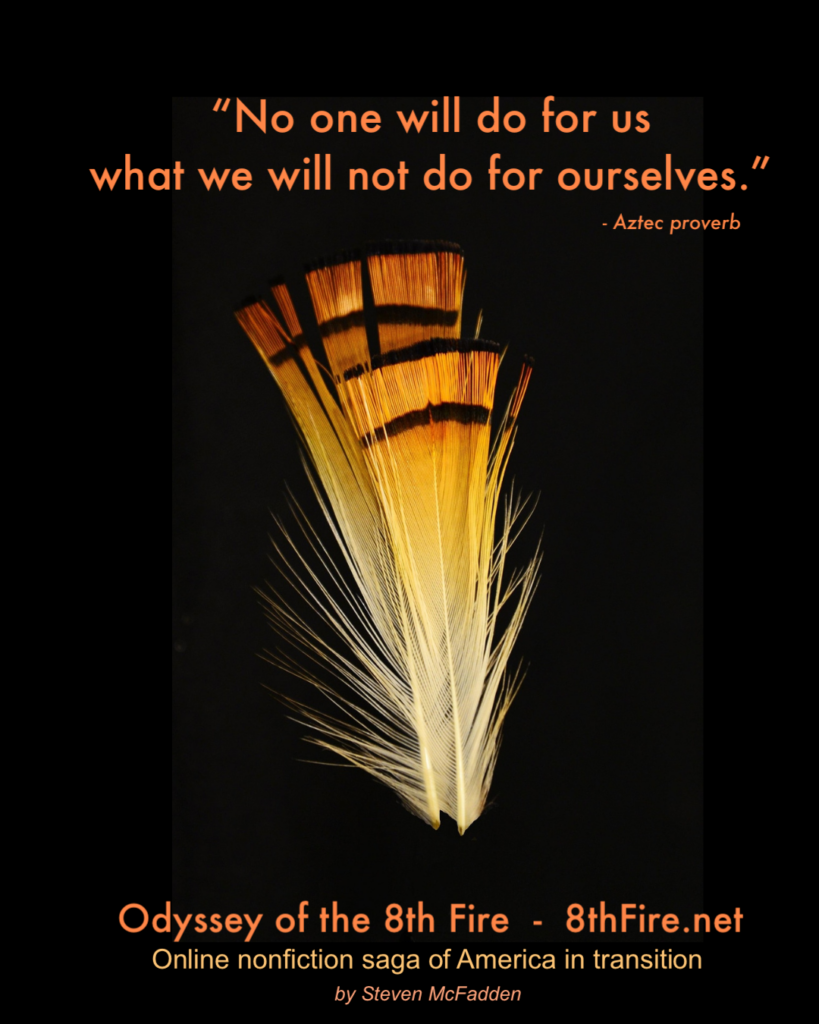
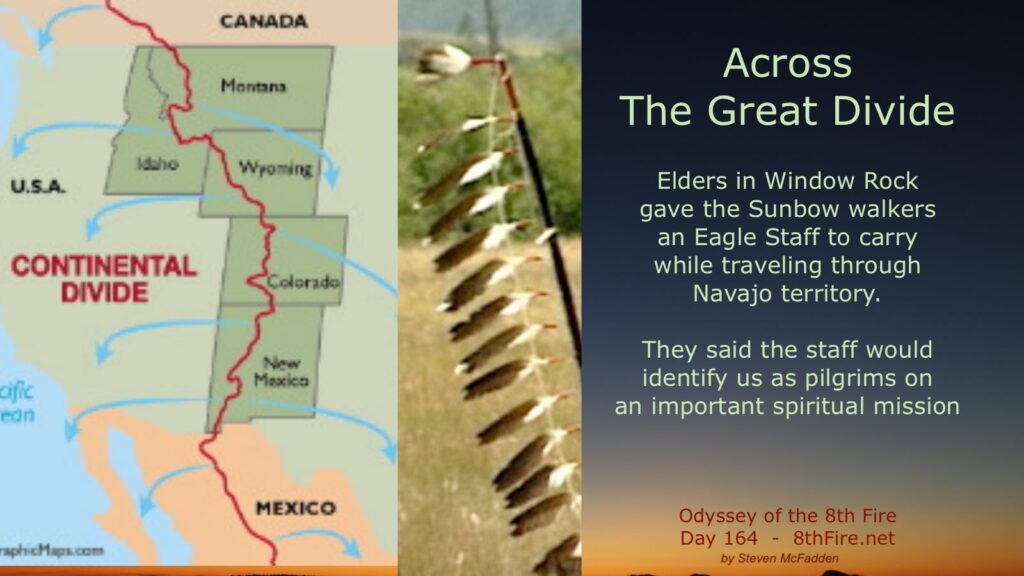
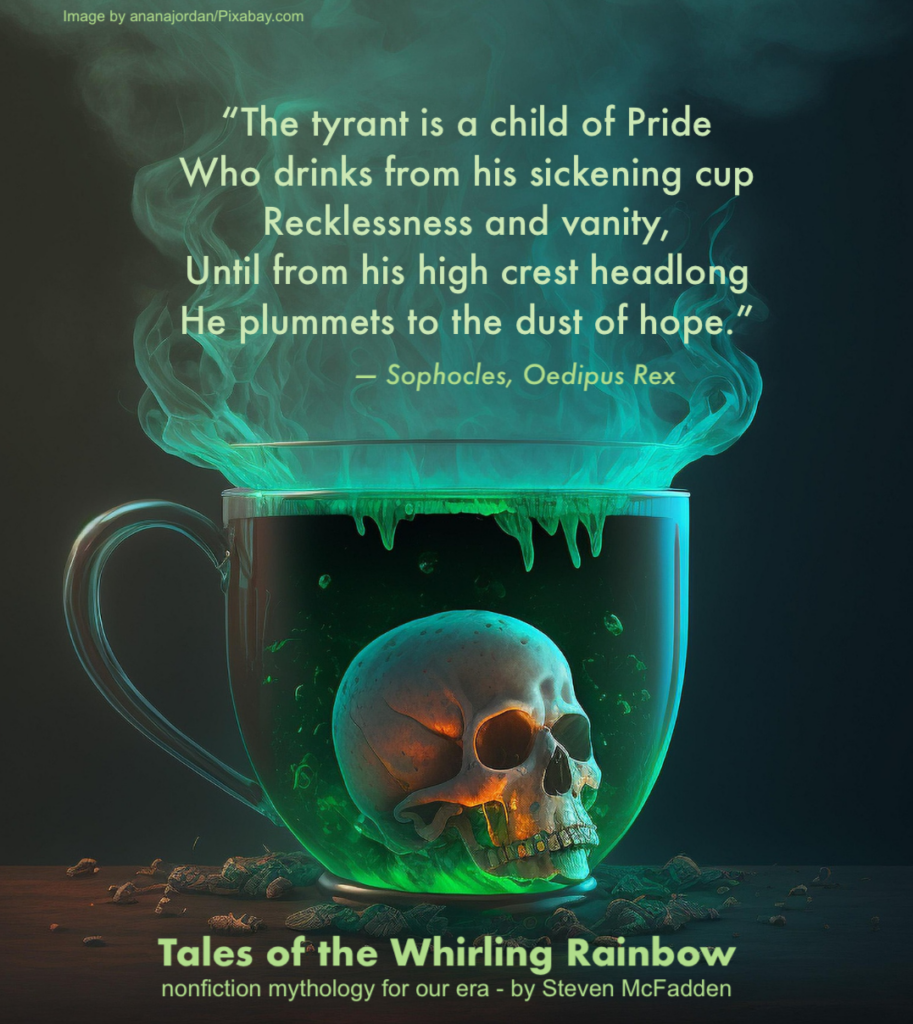
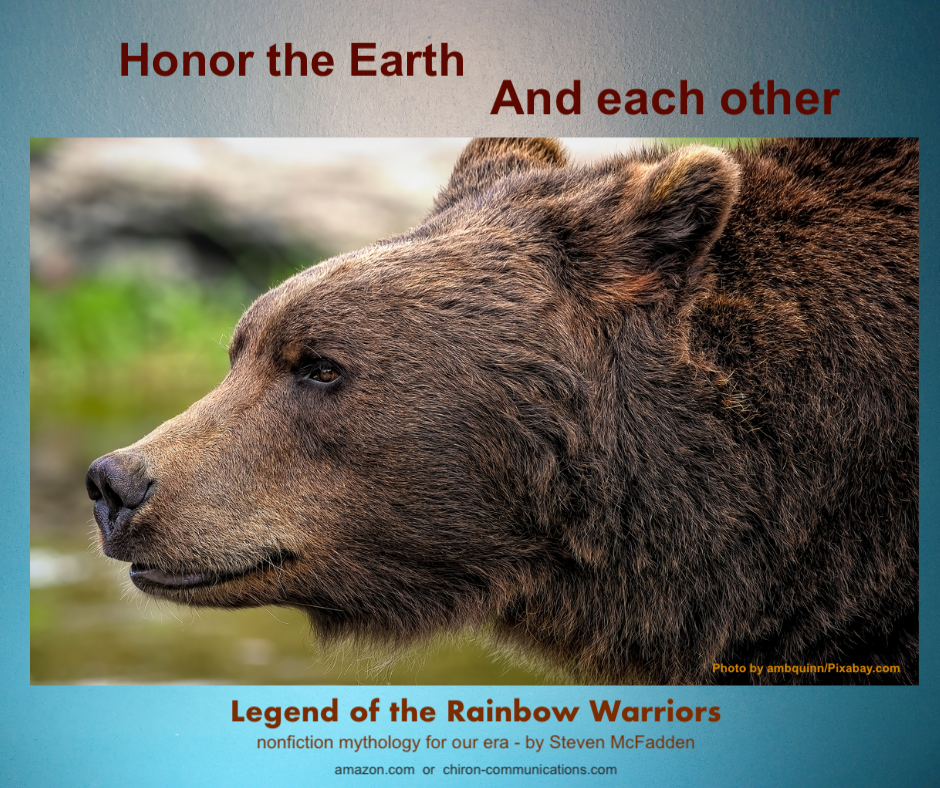
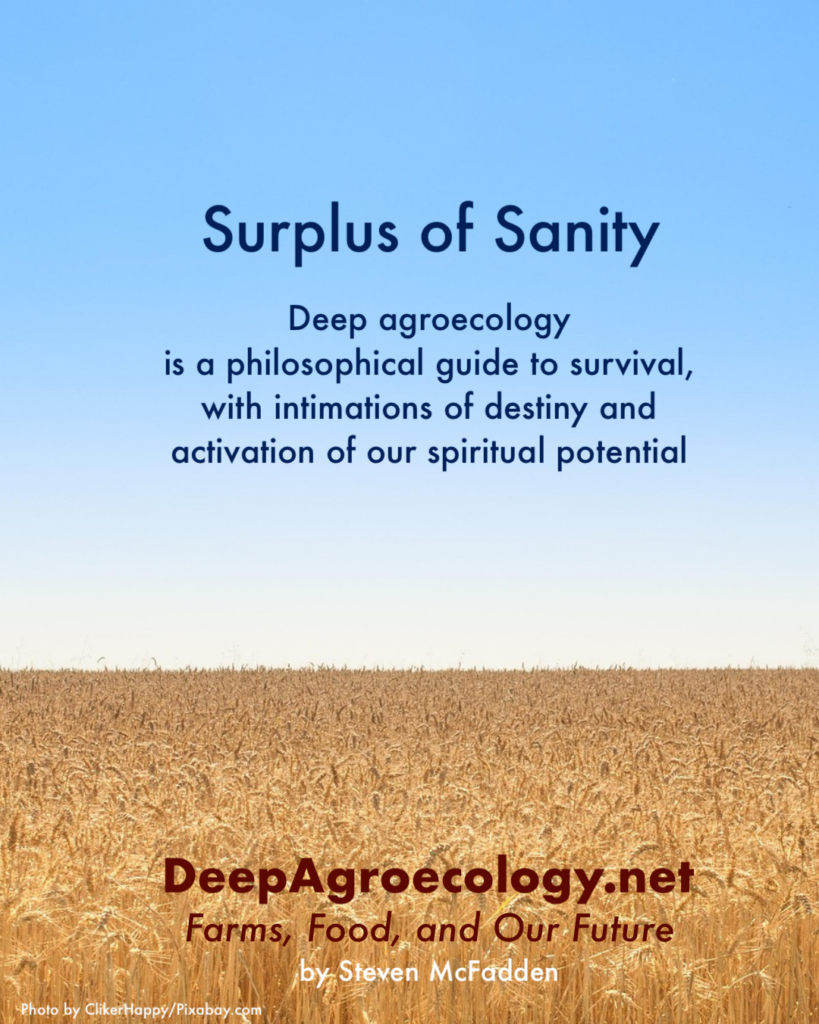
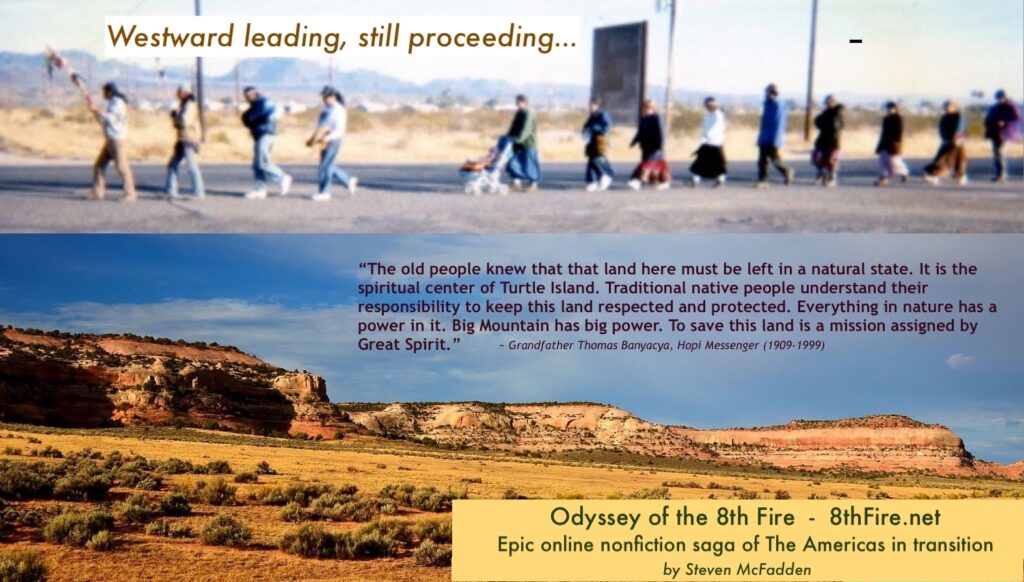

Welcome to Gallery VIII
Links to the other pages:
Gallery I Gallery II. Gallery III. Gallery IV. Gallery V. Gallery VI. Gallery VII.















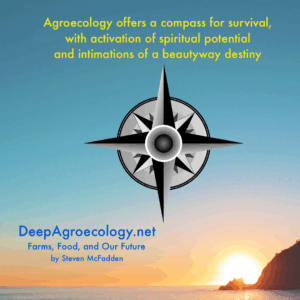 Academia.com recently reviewed my book, Deep Agroecology: Farms, Food and Our Future. They rendered their review in a five-minute podcast. You can listen to it by clicking below on the start arrow for the MP3 recording.
Academia.com recently reviewed my book, Deep Agroecology: Farms, Food and Our Future. They rendered their review in a five-minute podcast. You can listen to it by clicking below on the start arrow for the MP3 recording.
Their AI-generated Abstract
Steven McFadden’s book Deep Agroecology: Farms, Food, and Our Future presents a blend of spiritual and scientific perspectives on agroecology.
The book argues for the inseparable connection between agroecology and the survival of the Earth, emphasizing a holistic approach that integrates the physical and spiritual realms within food systems.
Through a critical analysis of modern agricultural practices and historical contexts, McFadden advocates for a shift towards sustainable agroecological methods, which he posits as essential for addressing ecological crises and fostering an intentional relationship with nature.
The book suggests that by seeking deeper knowledge and connection with our food and farm sources, we don’t just eat better, we participate in much bigger, far more consequential healing deed as our life-sustaining Planet Earth passes through an era of tremendous challenge.
Click on the start arrow to listen to the brief podcast review:
This is a rendering of an AI poster for the book, also from Acdemia.com. In my view it is just kind of ok, but one statement is way off the mark. AI claims the book “advocates for the fusion of human and non-human life.” What? I never wrote that, never even thought it. Dangerously wrong “wishful thinking” on the part of AI.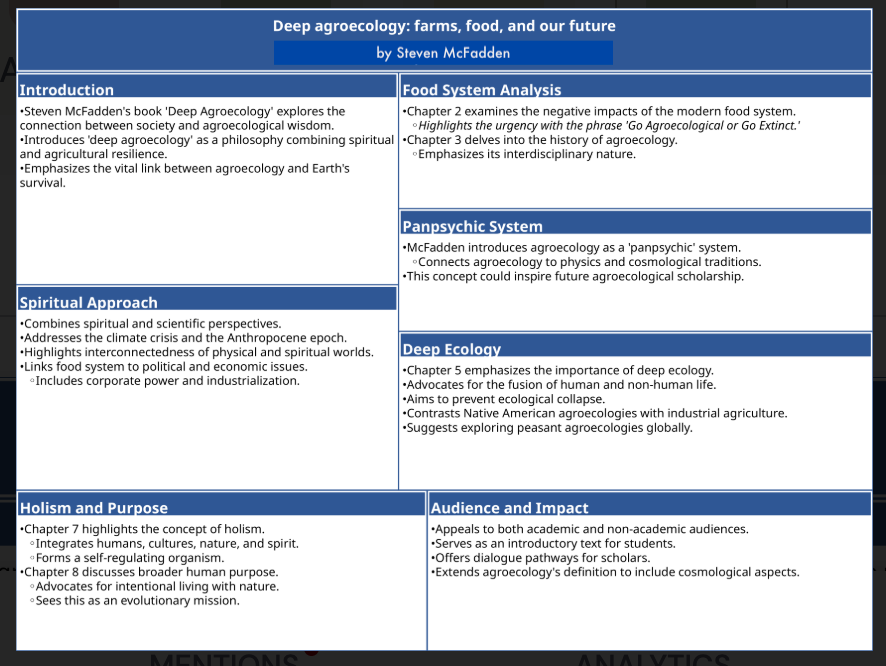

Welcome to Gallery VI – Click here to return to Gallery I
























Click here for the start – Gallery I – Chiron’s Museum of Marvelous Memes
As of 2025 one of the classic books about the CSA movement—Farms of Tomorrow Revisited—has been translated and published in the Spanish language as Las Granjas del Mañana Revisitadas: Comunidad apoyada por Granjas, Granja apoyada por Comunidades.
 Nearly 40 years ago I was the Organic Outlook columnist for a rural newspaper when I met a farmer setting down roots the next town over, Trauger Groh (1932-2016). Trauger and his colleagues Lincoln Geiger and Anthony Graham were founding one of the first CSAs in the nation: the Temple-Wilton Community Farm in New Hampshire.
Nearly 40 years ago I was the Organic Outlook columnist for a rural newspaper when I met a farmer setting down roots the next town over, Trauger Groh (1932-2016). Trauger and his colleagues Lincoln Geiger and Anthony Graham were founding one of the first CSAs in the nation: the Temple-Wilton Community Farm in New Hampshire.
Recognizing the importance of the seeds the first CSAs were planting, Trauger and teamed up to write Farms of Tomorrow in 1990, published by the Biodynamic Association.
Eight years later we returned to the subject and wrote Farms of Tomorrow Revisited (1998) to consider what farmers and communities were actually experiencing and learning. That’s the version of the book now translated as Las Granjas del Mañana Revisitadas by Martin Alonso of StayTrue Organics in Argentina.
Along with other CSA books, educational materials, and organizations, our books have helped to spark and to support well over 8,000 CSAs (est.) in the USA, and many thousands more worldwide.

Journalist Steven McFadden stands before a poster for Farms of Tomorrow, and also one for Farms of Tomorrow Revisited.
Whether in English or Spanish, the subtitles for our books express a main point of focus: “Community Supported Farms, and Farm Supported Communities.” The phrase reversal in the subtitle highlights an key point. In recent years CSA has often been promoted as a “marketing model,” whereas Trauger and I—along with many others—envisioned CSA as a “community model.” Consequently, in our writing we actively explored social, environmental, and spiritual dimensions of this emerging form.
Our explorations remain healthfully provocative now in 2025, and beyond, especially the explorations of “associative economy,” “parallel polis,” and the preservation of farmland via innovative trusts, that young farmers might be enabled to fulfill their vocations.
Note: In early February 2025 I participated in an online zoom conversation about CSA with the publisher of Las Granjas del Manana. The English-language recording of that zoom call is at this link; the Spanish-language recording is at this link.
In a review of the English-language version of our book, Resurgence Magazine commented “It is rare to come across any practical farming guide that sets out, from its inception, a set of principles that embrace social, spiritual and economic concerns on completely equal terms…The wisdom and clarity of philosophy are striking throughout.”
As Bill T. put it in an Amazon review: “The concepts of community supported agriculture (CSA) grab at the imagination: reconnect with the land and farmer, know exactly where your food is coming from…”
In yet another review published in the Journal of Applied Communications, Mickie Swisher wrote “For those who have little or no previous experience with community-based agriculture, this book brings together information and resources in one place. Even for those who think that community-based agriculture is either unimportant or unrealistic, Groh and McFadden’s book is worth reading. It will, at the least, stimulate thought. With luck, it will produce action.”
The actions now needed – actions that Las Granjas del Mañana Revisitadas can help stimulate – are the further development and networking of clean, healthy, just CSA farms in thousands more communities, both Spanish and English speaking, along with the many other languages of the world.

As cloaks of summer heat settled upon most of North America, and storms raged severe in sky, land, and sea, I happened upon a 2020 academic review of Deep Agroecology.
I’d missed the review at the time, as I was reckoning that year with the passing of generational elders, and also a household move from Nebraska back to the mountains of the Southwest. But I’m happy to have come upon the review now, some four years later. I needed to hear a familiar chord sounded again.
 Reading the analysis reminded me of the perilous realities that had driven the writing of the book, realities that had gone into soft focus for me since publication five years ago. That came about as, after the year of transition, I became intent on completing another writing project, the biography of Iina’bi’ho spiritual elder Leon Secatero (1943-2008). That book is moving toward completion.
Reading the analysis reminded me of the perilous realities that had driven the writing of the book, realities that had gone into soft focus for me since publication five years ago. That came about as, after the year of transition, I became intent on completing another writing project, the biography of Iina’bi’ho spiritual elder Leon Secatero (1943-2008). That book is moving toward completion.
The 2020 review of Deep Agroecology was written by Hannah Kass, Ph.D and published in the journal Food, Culture & Society. What sparked me in reading the review was her proficient description of my book’s goal: to state plainly the crucial knowledge that agroecology has to offer to the general public, and to sound a call for wide, strategic implementation in our era of mounting perils.
Professor Charles A. Francis (U. Nebraska) suggested the deep agroecology theme to me around 2012. After seven years of study and contemplation what emerged was not so much the expression of a personal vision, but rather the synthesis of a chorus of learned voices. Together they express an evolving vision—a strategic vision—shared by millions of people around the world. Deep Agroecology is my effort to articulate that compelling vision, along with a host of healthy pathways that can lead toward a just, sustainable, and spiritually elevated future.
Despite appearing as an academic concept, agroecology is altogether of the people and the earth: of the way we live on the land, and the way we give and receive sustenance with the earth. As we are at a point of peril, and our farm and food foundations are in critical transition, I wrote Deep Agroecology for the people—for all the people.
 In her book review, Kass noted: “Using the framework of extinction and evolution to explain deep agroecology’s spiritual purpose, McFadden aptly demonstrates the inextricability of physical and spiritual worlds in the food system…He connects these worlds to the political economy of food, pointing out the climate’s ties to the intersecting problems of corporate power, industrialization and rural dispossession.”
In her book review, Kass noted: “Using the framework of extinction and evolution to explain deep agroecology’s spiritual purpose, McFadden aptly demonstrates the inextricability of physical and spiritual worlds in the food system…He connects these worlds to the political economy of food, pointing out the climate’s ties to the intersecting problems of corporate power, industrialization and rural dispossession.”
Agroecology offers a wide array of sensible, sustainable, just, and strategically intelligent pathways to sustain our civilizations, and help them to progress in ever-wiser way.
Terra Madre – We Are Nature
 One place where the theme of agroecology will resonate with power and beauty is at this years 20th anniversary Tierra Madre global food community gathering in Turin, Italy (Sept. 26-0).
One place where the theme of agroecology will resonate with power and beauty is at this years 20th anniversary Tierra Madre global food community gathering in Turin, Italy (Sept. 26-0).
The 2024 theme is “We Are Nature.” As a key part of the proceedings, the conference is establishing a spectacular space dedicated to agroecology: “an alternative food system paradigm that counters industrial agriculture…It is rooted in the reconstruction of relationships between people, agriculture and environment, food systems and society.”
![]()
 In a thought-provoking essay published in 1990, Wendell Berry asked, “What are people for?” Now more than three decades later, with the aggressive incursion of artificial intelligence (AI) into our lives, Berry’s rhetorical question takes on added magnitude.
In a thought-provoking essay published in 1990, Wendell Berry asked, “What are people for?” Now more than three decades later, with the aggressive incursion of artificial intelligence (AI) into our lives, Berry’s rhetorical question takes on added magnitude.
What does it mean to be human in the Age of AI? Especially if the craft, trade, or profession you mastered is rendered irrelevant by “intelligent machines.”
Meanwhile…In our moment of history, with the aid of AI, enormous industrial, chemical, GMO infused agri-corporations are continuing to subsume and to overshadow food systems, while colossal billion-buck investment firms continue to hoard farmland. This commercial juggernaut of consolidation and concentration for greater profit brings a second question into focus: What are farms for?…
Note: the rest of my essay is located on my dedicated blog for DEEP AGROECOLOGY. Click here to read the rest.
Steven McFadden is an independent journalist based in the Southwest of the USA. In the early 1980s he initiated Chiron Communications as an umbrella concept for his varied interests and pursuits. Chiron is a bridging figure, and bridging is what he has mainly been interested in over the years. What follows is the transcript of his 2023 interview with Heena at The Reading Bud.
In the early 1960s, upon my older brother Mark’s urging, I took typing class. I was in the 9th grade, and my brother said it was a foolproof way to meet girls. Ha. I did make a few friends, but no teen romances. Just as well for that moment in time, I suppose.
We learned on clanky old manual machines, and back then I felt it was a complete waste of time, although my hands and fingers did become knowing of the keys. By the end of the year I could type perhaps 25-30 WPM. Not impressive, but enough to get by. As school ended and summer began, I thought it likely that I’d never see a keyboard again.
Wrong.
Here it is now, some 60+ years later and I’m still typing on a keyboard, albeit on a far superior machine, the digital age having dawned for me in 1990 with my first computer. Through the decades typing has been my core skill, a reliable tool for the fulfillment of my dharma – the soul impulses that have guided me along the path of my destiny.
What more to say beyond my bio? I’m happily married to Elizabeth Wolf. We’ve been together 16-plus years, and our relationship deepens. Our dog is Amigo, and our cat Lily. We are grateful to be together, to have shelter and food, and to be purposefully engaged in life.
Beyond the blurb, the main thing that occurs to me is to let readers know the profound depth of feeling I experienced in Spring 2023. That’s when I was moved to update this little book, Native Knowings, and make it available to readers in a print version as well as an ebook.
I’m glad I followed through. As the environmental, social, and political climates intensified, I understood with calm certainty that the voices of learned elders and tradition keepers could be steadying for many people. So those were my main motivations for compiling this version of Native Knowings: steadying the people, and giving readers an opportunity to engage some of the deeper roots of Turtle Island (North America) as we pass through a turbulent era of transition.
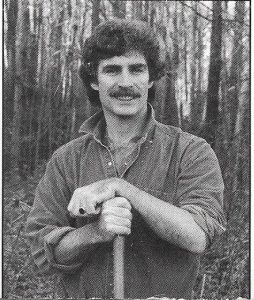
Author Steven McFadden – circa 1985
Since graduating from Boston University in 1975 with a degree in journalism, my personal and professional interest has been to explore intelligent and spirited ways of living on the earth, and then to explain in writing what I’ve been able to understand.
The contemporary tradition keepers of the North American continent are part of an unbroken chain of practical and contemplative understandings (knowings) that go back many thousands of years, long before immigrants came to the land and began calling it America. It is altogether worthwhile to listen to what the learned elders have to say.
From my point of view, considering the condition of our world, listening is critical, deepening, and enriching. The elders offer keys to survival and well-being for all who now call America home, and in many respects for people all around the world.
My response to question 3 also addresses this question in general. But to add context: I first became interested in learning about our indigenous relatives and neighbors in the late 1970s. I was awakened by a bumper sticker on the back of a beat-up VW in a parking lot of my small village. It said something like “Broken Treaty Score: Red Man 0, White Man 370.”
When I looked into what that might possibly mean I learned that in fact the USA had broken or violated virtually every single one of the solemnly sworn treaties it made with various Native nations. Recognizing that track record of faithlessness by my own government raised an persistent series of questions for me. What? How? Why? And so forth. As a citizen, I felt a share of responsibility for the agreements my government had made and broken. As a journalist, I felt compelled to pursue answers to the questions. What’s going on here? What’s the story. Where does honor lie, and how can honor be advanced? That’s been my career, and Native Knowings is but one concise expression of what I’ve experienced and heard along the trail.
As the years of my life unfurled I began to write about clean, sustainable farms and food (so important), and also to engage the native knowings that were at the heart my personal mission as a messenger: take care of the earth and each other.
In terms of compiling the words and photographs, then dealing with layout, cover and other technicalities, it took me just over a month. But to get to the point in life where I had the experience, the tools, the material, and the artistic discernment to express them, about 75 years.
Good question. I’ll be 80 in five years, and of course one never knows…At this mature stage one has seen so many souls come and go, and thereby inevitably one has passed through many enriching stages of emotion and understanding about life and death. I’m at peace with whatever comes, although I’m staying fit and actively writing, aiming to live into my 90s. We shall see.
Of note, I had a clear perception at age 40 that I had fulfilled my dharma and could sail off into spirit if I so desired. It was a profoundly peaceful and satisfying sensation. A knowing. For me that knowing was pronounced and enduring. But at the same time I recognized that I could contribute more to the world, that it had potential to be benevolent, and that I was not ready to release. All these years later, I still feel that way.
Yes. I’m nearly finished writing a full-length biography. The title is “Wind Walker: The Sacred Journey of Naa t’áanii Leon Secatero in concert with Ni?ch?i Diyin (Holy Wind).” Leon (1943-2008) was a talented and dedicated leader, a servant to his own Navajo community in the Southwest of the United States, as well as for the world at large. His story presents a great and uplifting vision for the world, and also offers a model of exalted courage and leadership. The book should be in print some time in 2024.
No.
My mother’s brother–good old Uncle Paul–was a writer. He once wrote an article for True Magazine. It came out when I was about 11 or 12. The title was “Why I poach deer” and the byline was not my uncle’s name. He instead used my father’s name (Edward Leo M.) as a pseudonym, so no game wardens could read the article and then come hunting for him.
The article made a notable impression in our household. Among other things, it started me thinking that writing could be a job; it could be what a person did in life, among all the possibilities – engineer, builder, doctor, teacher, etc. So many possibilities. And now, for me least, writer was also among that range of possibilities.
While it has not been financially easy to be an independent journalist, and it has required many sacrifices, it’s been worthwhile. I’ve been able to write not what others assigned to me, but rather what called me from both within and without.
At this stage I’m not sure I’d call anything I do a ritual. Beyond my first cup of coffee, I’m very much in the moment. If I feel it’s time to write, I write. Time to research, I research. Time to hike along the river or climb a mountain, then I’m off to do that.
Always in the back of my mind I’m aware of deadlines, and I am faithful to them, but I’ve no set times or procedures. When the juice is flowing, I write. Otherwise I am called along the trails of One and also Ten Thousand Things.
Writing is my profession, yet it has not provided sufficient income over the decades of work and marriage. I’ve been able to create hundreds of newspaper and magazine stories, and 15 or more nonfiction books, but I’ve also scrambled for income, working intermittently in a number of occupations: tree surgeon, groundskeeper, cook, yoga teacher, home care for elders, laborer, babysitter, pipe fitter, and more.
I recommend Basic Call to Consciousness, published by Akwesasne Press.
Having started my career writing for newspapers for several years, I never experienced the luxury of being able to surrender to a writers block. There were always deadlines to meet, and the job was on the line. Meet the deadlines, or find a new career. That early conditioning has, thankfully, remained more or less consistent for me.
The mantra in my mind: my job is to tell verifiably true stories that offer a compelling and practical vision of the future. “Where there is no vision, the people perish.” – Proverbs 29:18 “ If you don’t have a dream, how can your dream come true?” – South Pacific
Pay attention to your breath. Master your breath, and you will more readily remain centered and capable through all you meet in life and in your profession.
With mastery of the breath you will be inspired: both literally and figuratively. Your personal inspiration will add light to your soul, to your words, and to the truths you strive to reveal through writing.

This original compilation–a small treasure of 72 pages–offers a concise and contemporary compendium of some key North American (Turtle Island) wisdom teachings to help support people through this era of transition.
– Frank Decontie, Kitigan Zibi Anishinabeg
What do some of the venerable, deeply rooted wisdom teachings of the Americas offer in our era of transition?
This Soul*Sparks small treasure offers an array of thoughtful messages, a compilation of keys that everyone has opportunities to turn. We’d be wise to understand and then to weave their enduring insights into the fabric of what we are creating for ourselves, our children, and our children’s children
The words of contemporary elders, in particular, sound notes of urgency.
![]()
As the pace of world transition intensifies, I’m moved to once again articulate in direct language my understanding of the vision held by millions of people around the world: the vision of agroecology.
Thus, I offer below a two-minute slide show with words and images characterizing some basic elements of the agroecological vision, and also offering a glimpse at how deep agroecology embraces the vision, then endeavors to explore further into positive possibilities.
Note: The slides are set at 7-second intervals. You can start and stop the presentation by using the slide at the bottom.
 Our Collective Odyssey: Song and Story for the Generations Arising
Our Collective Odyssey: Song and Story for the Generations Arising Musical Invocation: Odyssey of the 8th Fire
Musical Invocation: Odyssey of the 8th Fire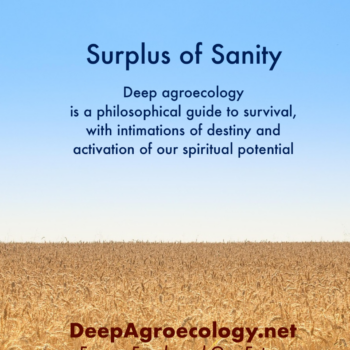 Marvelous Meme Museum Makes Memories
Marvelous Meme Museum Makes Memories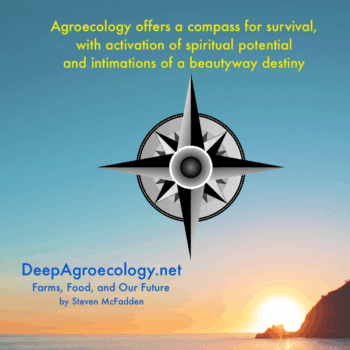 Podcast book review of Deep Agroecology (5 minutes)
Podcast book review of Deep Agroecology (5 minutes)